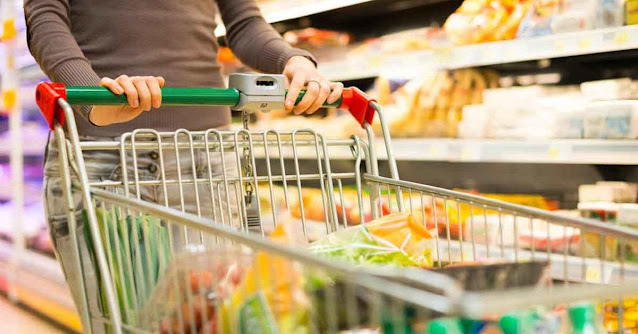To save money on food shopping, it is important to create a list adapted to its consumption. This printable document will allow you to stock up on vitamins and minerals during your week.
When you go shopping, you may feel out of inspiration or on the contrary tend to disperse without having bought what you really needed. This list will serve as your guide when you go to the supermarket or the grocery store.
Sometimes, a shopping list can be incomplete and overlook certain essential foods. For your breakfast, lunch or dinner, you can buy whole meal bread, tortillas, pita bread and English muffins.
2. Meat and seafood are the source of protein for your groceries
For this part of the shopping, follow the recipes you plan to prepare. You can buy lean meats such as turkey, chicken breast, ground chicken steak or even varieties of fish such as tuna, salmon or trout. Seafood such as shrimp or squid can enhance your dishes.
3. Pasta and rice are the slow sugars necessary for your shopping
For a balanced diet, it is recommended to buy brown rice, pasta and whole grains for a hearty and healthy meal.
4- Oils, sauces, dressings and condiments are necessary for your shopping
To enhance the flavor of your dishes, these foods are ideal. Add balsamic vinegar, hot sauce, barbecue sauce, mustard, capers, jarred olives and olive oil to your cart. It is recommended to choose jars with a low level of sodium and of biological origin. Choose homemade or low-fat alternatives to mayonnaise and hot sauce.
5- Cereals are essential for your breakfast to include in your shopping list
For this important meal that allows you to start the day, whole grain bars, oatmeal or multigrain cereals will provide you with the fiber your body needs.
6- The soups and preserves included in your shopping will facilitate the preparation of your meals
Your shopping list, include:
- Diced or whole peeled tomatoes
- Diced green peppers
- Low sodium soups and broths
- Black, red, soy or garbanzo beans; lentils, split peas
If you opt for canned fruits, opt for those that are preserved in their juice rather than in syrup.
7. Frozen foods are handy for quick errands
If you're in a hurry or you're new to cooking, it's handy to have these notes in your list:
- Frozen vegetables: broccoli, spinach, peas and carrots (without sauce)
- Low-fat ice cream or frozen yogurt
- Frozen fruits: strawberries, raspberries, blueberries (no added sugar)
- Whole grain waffles
- Frozen shrimp
8- Dairy products, cheeses and eggs are essential for your shopping
These products will provide you with the protein needed for your recommended daily intake. Before going to the supermarket, note:
- Low fat cheese snacks
- Skim or low-fat milk or almond milk
- Fat-free cottage cheese
- Organic eggs
- Ricotta
- Butter or spread without palm oil
It is recommended to get strong tasting cheeses like parmesan or goat cheese, if you want to make a tasty dish using a small amount of this dairy product.
9- Snacks and crackers should be on your shopping lists
For a quick snack, these foods are perfect!
- Nuts: almonds, cashews, walnuts, peanuts, pecans, pistachios (roasted and unsalted)
- Dried fruits: apricots, figs, prunes, raisins, cranberries
- Whole grain crackers
- Peanut, almond or soy butter
- Hummus
- Dark chocolate with more than 70% cocoa
- Seeds: sunflower seeds, sesame seeds, whole or ground flax seeds.
Seasonal fruits and vegetables are must-haves on your shopping list
Depending on the season, they are perfect for their fiber intake and to fill up on vitamins. You can choose :
- Fruits: apples, oranges, mangoes, strawberries, blueberries, bananas and apricots
- Vegetables: baby spinach, sweet potatoes, broccoli or carrots
Choose locally grown and organic foods. You can also take pre-cut fruits or vegetables to save time in the kitchen!
This comprehensive list will make it easier for you if you do monthly shopping. Your pantry will be stocked with healthy, balanced foods.


